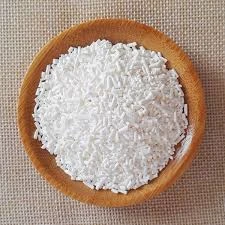
compost fertilizer
The Benefits of Compost Fertilizer Embracing Sustainable Gardening
In today’s world where environmental concerns are at the forefront, gardening practices are also evolving. One of the most efficient and sustainable ways to nourish plants is through compost fertilizer. This organic material, produced through the decomposition of various organic waste products, not only enriches the soil but also contributes to reducing environmental waste.
Compost fertilizer is often made from kitchen scraps, yard waste, and other organic materials, transforming these potential waste products into valuable nutrients for plants. By composting, gardeners can recycle food scraps such as vegetable peels, coffee grounds, and eggshells, as well as yard debris like grass clippings and leaves. The decomposition process, facilitated by microorganisms, creates a nutrient-rich substance that can significantly improve soil health.
One of the primary benefits of compost fertilizer is its ability to enhance soil structure. Traditional soil can often become compacted, which restricts root growth and water absorption. Compost helps to aerate the soil, providing a loose texture that encourages healthy root development and facilitates better water penetration. This improved structure leads to healthier, more resilient plants that can better withstand drought and other stresses.
Moreover, compost fertilizer is packed with essential nutrients that plants need to flourish. It contains macronutrients, such as nitrogen, phosphorus, and potassium, as well as micronutrients like iron, magnesium, and calcium. Unlike synthetic fertilizers, which can lead to nutrient leaching and soil degradation, compost releases its nutrients slowly over time, ensuring that plants receive a steady supply. This slow release reduces the risk of nutrient runoff into waterways, promoting a healthier ecosystem.
compost fertilizer

Another significant advantage of using compost is its ability to retain moisture in the soil. Compost acts like a sponge, holding water, which helps reduce the need for frequent watering. This is particularly beneficial in regions experiencing water scarcity. By retaining moisture, compost not only supports plant health but also contributes to more sustainable water use practices.
In addition to its many benefits for soil health and plant growth, composting is an effective way to reduce waste. Municipal landfills are often overwhelmed with organic waste, which can take years to decompose naturally. By composting at home or supporting community composting initiatives, individuals can contribute to waste reduction efforts, minimizing their environmental footprint. This practice not only leads to healthier gardens but also fosters a sense of responsibility toward the environment.
Implementing compost fertilizer in gardening is also a cost-effective practice. While there may be some initial investment in materials or compost bins, the long-term savings are significant. Gardeners can save money on commercial fertilizers and reduce the amount spent on water due to improved moisture retention in compost-enriched soil.
Finally, composting fosters a deeper understanding of the gardening process. By actively participating in the decomposition of organic materials, gardeners learn about nutrient cycles, soil health, and the importance of sustainability. This knowledge can inspire further eco-friendly practices, creating a ripple effect that extends beyond the garden.
In conclusion, compost fertilizer offers a multitude of benefits that align with sustainable gardening practices. From enhancing soil structure and moisture retention to reducing waste and promoting plant health, the advantages of compost are undeniable. By embracing composting, gardeners not only improve their own gardening practices but also contribute positively to the planet. As we navigate the challenges of environmental sustainability, compost fertilizer stands out as a shining example of how we can work with nature rather than against it.
-
Pure Sodium Dichloroisocyanurate Dihydrate | Powerful DisinfectantNewsAug.29,2025
-
Industrial Chemicals: Quality & Purity for Every IndustryNewsAug.28,2025
-
Nitrile Rubber Honoring Strict Production StandardsNewsAug.22,2025
-
Aspartame Ingredients Honoring Food Safety ValuesNewsAug.22,2025
-
Fertilizer for Balanced Plant NutritionNewsAug.22,2025
-
Cyanide Gold Processing with High Purity AdditivesNewsAug.22,2025
-
Formic Acid in Textile Dyeing ApplicationsNewsAug.22,2025
Hebei Tenger Chemical Technology Co., Ltd. focuses on the chemical industry and is committed to the export service of chemical raw materials.
-

view more DiethanolisopropanolamineIn the ever-growing field of chemical solutions, diethanolisopropanolamine (DEIPA) stands out as a versatile and important compound. Due to its unique chemical structure and properties, DEIPA is of interest to various industries including construction, personal care, and agriculture. -

view more TriisopropanolamineTriisopropanolamine (TIPA) alkanol amine substance, is a kind of alcohol amine compound with amino and alcohol hydroxyl, and because of its molecules contains both amino and hydroxyl. -

view more Tetramethyl Thiuram DisulfideTetramethyl thiuram disulfide, also known as TMTD, is a white to light-yellow powder with a distinct sulfur-like odor. It is soluble in organic solvents such as benzene, acetone, and ethyl acetate, making it highly versatile for use in different formulations. TMTD is known for its excellent vulcanization acceleration properties, which makes it a key ingredient in the production of rubber products. Additionally, it acts as an effective fungicide and bactericide, making it valuable in agricultural applications. Its high purity and stability ensure consistent performance, making it a preferred choice for manufacturers across various industries.





